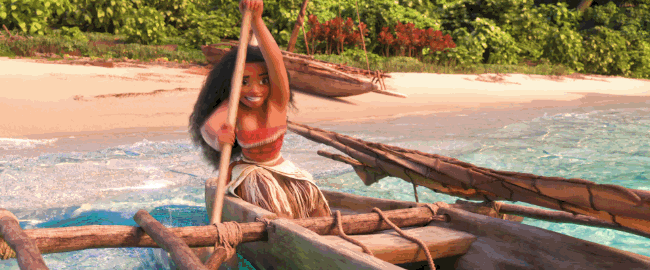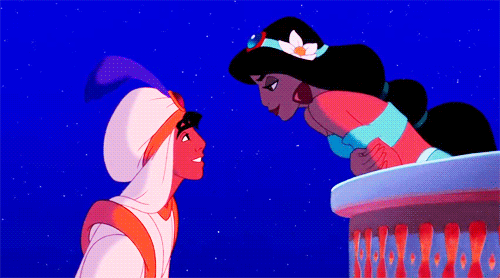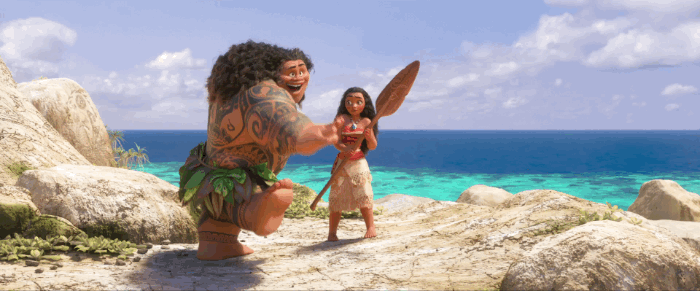Disney movies hold a special place in my heart, and I'm sure the even when I have my own kids, I'll still be just obsessed with the newest Disney movie or all things Disney related. "Moana," one of the newest Disney movies, features another strong female lead, who isn't looking for love but is instead looking to save her people.
A young woman who is taking over her father's job as chief of a small island called Motunui, Moana has always had a love for the ocean and all the mysteries that exist beyond the reef that is the perimeter of her village. The reef acts as a barrier to Moana's imagination and the things that may exist beyond the reef. The only problem is, no one leaves the island anymore because the island is the villages' safe haven. It has all the food, shelter and comfort that everyone could ever need. In order to save her village, Moana sets sail to find the demigod Maui to persuade him to return home with her to save her island from a dark plague. While her story focuses on (slightly) the idea of self-discovery, it is more so focused on the rediscovery of honorable traditions that defined Moana's people from the beginning.
While Moana features a great plot, the impact the movie has on the entire Disney brand is much more than adding a new princess to the lineup. It's about highlighting various cultures and adding to the diversity of the brand in order to highlight the diversity in the world around us. John Lasseter, the chief creative officer at Pixar Animation Studios, told Vanity Fair in an interview that Disney and Pixar Animation Studios are "trying to reach out and find origins of legends all over the world." In may ways Disney stepped outside of its "comfort zone" by featuring a princess (with no prince) who wasn't small and petite. That in itself is adding some diversity.
You may be thinking to yourself, "Well what about 'Mulan,' 'Aladdin' or 'Tiana?'" Good question. 'Aladdin' was released in November 1992, which was based in the Middle East. Though the film was based in the Middle East, Princess Jasmine, Aladdin's love interest, is an American character, and Aladdin is an American film. The move was even directed by two American white males, Ron Clements and John Musker, who both also directed 'Moana.' Mulan was released in 1998, The Lion King followed Aladdin two years later in 1994. These foreign films that us 90 kids know so well have been imprinted in our brains as exotic, cultural and foreign, but only recently has Disney really stepped up its game in expanding it's foreign and cultural boundaries.
'Moana' features actor Auli’i Cravalho, who grew up in Hawaii, but her racial background is a mixture of Chinese, Puerto Rican and native Hawaiian heritage. Similarly, Dwayne "The Rock" Johnson plays the voice of Maui, and he adds to the diversity of the cast because he is black and Samoan.
Fun fact: before the directors could begin filming 'Moana' they had to research Polynesian culture. They even made a trip to Polynesia, and created a group, called the Oceanic Trust, according to a Vanity Fair article. This group was made up of anthropologists, cultural practitioners, historians, linguists, and choreographers from various islands. They helped to craft 'Moana' into what is turned out to be.
With Disney making so many steps in the right direction in terms of making diverse, culturally accurate and foreign animated films that increase boys and girls awareness of diversity, who knows what Disney has in store next after 'Moana.' According to a Konbini article, many Disney lovers are asking for an LGTBQ princess. Look up the hashtag #GiveElsaAGirlFriend, and you'll see everyone's enthusiasm and hopefulness on this next step being taken.
Now I've given you more of a reason to love the newest Disney 'Moana.'



















